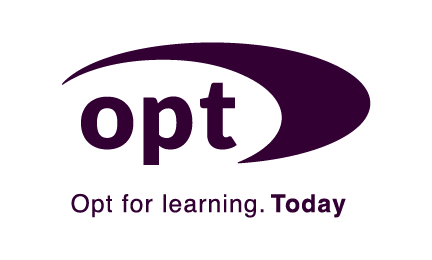Hybrid working, a fiercely competitive labour market, the world economic stage and ever-tightening budgetary requirements, how can we reconfigure organisational learning and development (L&D) opportunities in the reshaped workplace?
Serious inflation, rising fuel and energy costs and a flexible working environment have delivered new challenges for L&D, a key strategic element of organisational competitiveness and individual development. How to ensure staff loyalty in the hybrid workplace, for example, where traditional ways of learning no longer readily match the working environment. Key to low staff turnover, a healthy organisational culture and individual partners in the learning process, staff loyalty is one indicator of why the successful implementation of learning strategies and adaptation of learning opportunities to the flexible workplace must be a principal consideration.
Off the job and on the job
Before exploring ways to adapt learning opportunities for the hybrid workplace, with financial constraints at the forefront, it is worthwhile considering the off the job and on the job ways of learning, a succinct, general description of the overarching approach to pre-pandemic workplace learning.
Off the job, a formal, structured approach, linked to organisational goals and business needs, with measurable outcomes, delivered by professional trainers and consultants away from the immediate working environment. An opportunity for impactful learning, offering the human touch, valuable networking and problem solving with peers, together with increased knowledge of the bigger picture and away from the distractions of the job.
On the job, in the work setting, with structured approaches such as coaching and informal learning around competencies, structures, norms and culture. Learning through social interaction, teamwork and problem solving. Incidental, experiential, unstructured and spontaneous, the quality of learning affected by management styles and the texture of organisational communication.
eLearning and digital learning events
In the hybrid workplace, eLearning offers wide ranging and cost-efficient digital programmes, removing the pressure of logistical challenges as well as the cost of travel and venue hire. There is, however, a cost in the absence of the human touch, the opportunity to learn directly alongside experienced workers and specialists, problem solving among peers and gaining knowledge of the all-important organisational culture and business expectations. Especially important for new starters and team members shaping the direction of organisational change and continual improvement.
There is also the emergence of the hybrid learning experience. Digital learning events with participants in different locations. Despite potential savings on venue and travel costs there are notable drawbacks. Unpredictable connectivity issues, for example, formulating a backup plan in the event of poor connection and the scope for participant distractions such as carrying on with work tasks, messaging and phone activity during the event. There is also the question of whether people can retain focus remotely over a significant period of time.
An L&D infrastructure
As well as the pros and cons of various learning methods, there are organisational obstacles, including organisational objectives, culture, vision, human and financial resources, structures and management styles.
The successful implementation of an L&D strategy in the hybrid workplace requires a strong culture of continual learning and dialogue, supported by an organisational L&D infrastructure able to co-ordinate team learning, learning in groups, developing communities of practice and measuring outcomes against business goals.
L&D in the flexible workplace
In my recent experience, designing organisational development resources for the flexible workplace, it is clear that structured, goal directed learning activities with measurable outcomes can be adapted to the more informal, on the job setting and match the versatility of the flexible working environment, for a relatively low cost.
In a world of work that is ever more financially constrained, organisational sustainability is critical. L&D initiatives led by employees in-house, including, for example, managers, or team leaders, expert co-workers, human resource, L&D professionals can reduce costs and sustain organisational growth and development. Training sessions assimilated into workflow and integrated with daily routines such as, regular team meetings, group discussions, project teams, workshops and digital materials. Meaningful learning initiatives, creating the opportunity to embed a cost-efficient culture of continual learning and sustainable improvement at every level.
A learning programme with, for instance, the aim of generating a whole team / workforce understanding of the risk, to both the organisation and individual, of workplace bullying and harassment. A programme of compact learning activities, centred around healthy working relationships, open communication, a healthy respect for difference and developing policy and procedure. Structured, yet flexible, facilitated in-house and absorbed into workflow such as regular team meetings and team activities.
As well as improving knowledge, skills and awareness, topical, relevant and engaging group learning activities can be a motivational tool, stimulating the spirit of collaboration. Adaptable to both in-person and virtual learning settings, offering the activities with no separation between learning and work can relieve logistical challenges and incorporate the human touch. Moreover, there is access for all, with learning opportunities for everyone, valuable inclusivity in the flexible workplace.
Any reservations around in-house expertise to facilitate flexible and compact learning activities integrated into daily routines, can be alleviated by designing programmes that match key management competencies. Ability to manage group dynamics, for instance, summarise information, effective questioning skills and a non-judgemental approach to facilitate team and individual learning to achieve organisational objectives.
L&D opportunities at every level
The same approach of flexible, yet structured and measurable, compact learning activities and self-directed learning materials can complement leadership development programmes. Developing leaders to deliver group learning initiatives, facilitate change, build capacity within teams, develop collaborative working across teams and cultivate an organisational culture of dialogue and enquiry.
With cost, design, flexibility and sustainability as the key drivers, it is possible to adapt the best of in-person learning to the virtual working environment. Training solutions assimilated into workflow, integrated with daily routines offer opportunities on many levels, including leadership development to facilitate change management, a motivational stimulus for teams and individuals, building team cohesion, collaborative working and cross team development. Versatile, flexible and accessible to develop an inclusive organisational culture, open to new ways of working and continual improvement.




